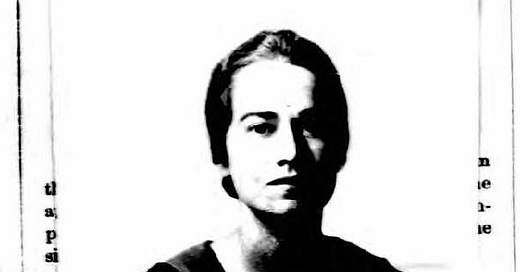Confession of a Feminist II
A serialized biography of Jane Grant (1892-1972), first woman reporter at The New York Times and co-founder of The New Yorker
This Week’s Schedule
Saturday: A Book I Won’t Write; or, A Book One of You Should Write—Ideally Before 2025
Sunday: “The gentle art of being weak”
Keep reading with a 7-day free trial
Subscribe to Study Marry Kill to keep reading this post and get 7 days of free access to the full post archives.




